Jack Hendrick Taylor was America’s first Sea, Air, and Land commando who pioneered operations core to the U.S. Navy SEALs.
At the outbreak of WWII, the thirty-two-year-old Taylor had been a practicing orthodontist in Hollywood, California. Far removed from his professional life of fixing teeth, Taylor was a man of action and master of the sea, who possessed expert boat-handling skills and brought with him a lifetime of experience and adventure, making him the perfect fit for a new branch within the Office of Strategic Services – the Maritime Unit (MU).
Charged with executing maritime operations and sabotage behind enemy lines during WWII, Jack Taylor emerged as one of the unit’s earliest and most remarkable members. Taylor was pivotal in testing the Lambertsen Amphibious Respiratory Unit (LARU), an advanced underwater rebreather developed by the OSS and key to covert underwater missions. He was also a founding member and pioneer in the first Underwater Swimmer Group. These innovations in tactics and technology laid the groundwork for future Navy SEAL and U.S. Army Special Forces underwater operations.
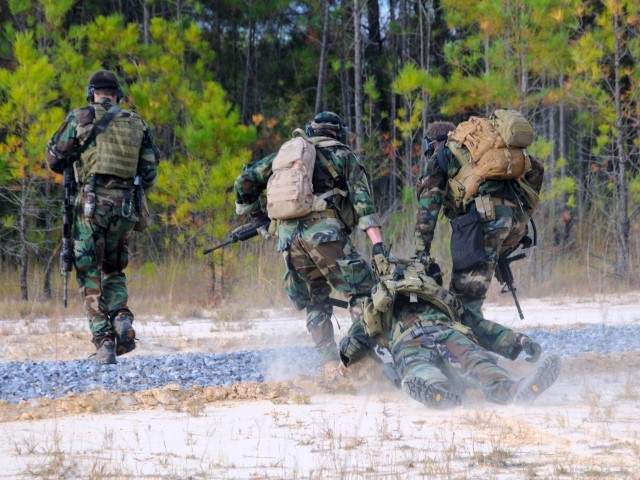
STENNIS SPACE CENTER, MS – OCTOBER 25: (EDITORS NOTE: Image has been reviewed by U.S. Military prior to transmission.) In this handout provided by the U.S. Navy, Navy SEALs simulate the evacuation of an injured teammate during immediate action drills October 25, 2010, at the John C. Stennis Space Center, Mississippi. The drills are a part of the SEALs pre-deployment training. Navy SEALs are the maritime component of U.S. Special Operations Command and are trained to conduct a variety of operations from the sea, air and land. John Scorza/US Navy via Getty Images
As MU’s first operative overseas, Taylor trained for underwater operations in Northern Europe; instead, the war thrust Taylor into vast expanses of the Mediterranean. His early missions involved reconnaissance, landing agents, sabotage, and intelligence gathering in operations that could be ripped from the pages of The Guns of Navarone.
Often working with film icon and OSS operative Sterling Hayden, Taylor shifted OSS Maritime operations to Italy. From here, the Maritime Unit covertly transported supplies and weapons to partisans in Yugoslavia. One of Taylor’s most daring missions (authorized by President Franklin Roosevelt) unfolded in Albania, where he, with assistance from Hayden, spearheaded a high-stakes rescue operation to extract stranded American nurses and medics when their plane crashed behind enemy lines. On a subsequent mission, with the roles reversed, Taylor would find himself and his team trapped behind the lines after a botched operation to extract them. They would spend weeks avoiding German patrols, walking hundreds of miles to reach Allied positions.
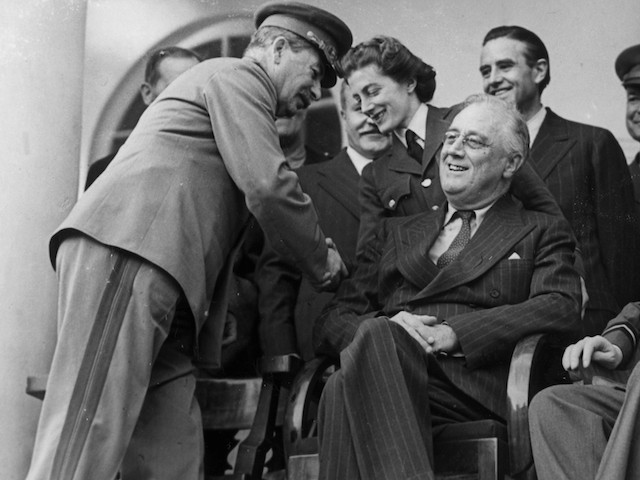
7th December 1943: American statesman Franklin Delano Roosevelt, the 32nd President of the United States of America, British Prime Minister Winston Churchill and Soviet leader Joseph Stalin during a conference at Teheran. Stalin greets Sarah Churchill. (Photo by Evening Standard/Getty Images)
Fearless, daring, and a risk-taker, Taylor volunteered, planned, and led the Dupont Mission, OSS’s deepest penetration into Nazi-occupied Austria until then. On October 13, 1944, Taylor’s four-agent team, which included three former German prisoners of war, Deserter-Volunteers (DVs), perilously parachuted into Austria in the dead of night at 400 feet. Dropping into an area devoid of partisans, no friendly reception committee existed to greet them. Making matters worse, the aircrew transporting the mission misdropped containers with the team’s radios into a lake. Despite being unable to contact OSS headquarters, Taylor gathered intelligence while evading the Germans for six weeks until the Gestapo captured the team. Tortured for months and confined to a damp prison cell, Taylor refused to be broken by his tormentors. Taylor’s story is told for the first time in my bestselling book First SEALs: The Untold Story of the Forging of America’s Most Elite Unit.
With the Red Army rapidly approaching from the east, the Gestapo transferred Taylor to the notorious Mauthausen Concentration Camp, where Taylor witnessed and endured the unimaginable: Germans turned the inmates into slave labor and later diabolically executed them via machine gun, gas, injection, hurled over 100-foot cliffs, or fed to dogs. The Germans ghoulishly assigned Taylor to a work party constructing a crematorium to hide their crimes. Taylor quietly fought back by gathering evidence of the Nazi’s war crimes, eventually securing thirteen “death books,” which included a secret code that recorded the cause of each death in the camp. The Germans scheduled Taylor’s death four times, but inmate clerks the OSS operative befriended found ways to delay each planned date of execution. On May 5, 1945, the 11th Armored Division liberated the camp, and Jack Taylor had withered from 165 to 114lbs. With a quivering hand, Taylor held up his dog tags and whispered the first thing that came to mind: “God Bless America.” Taylor’s liberators captured some of these incredible moments that can be watched on wartime footage, starting at 53 seconds in this extraordinary film.
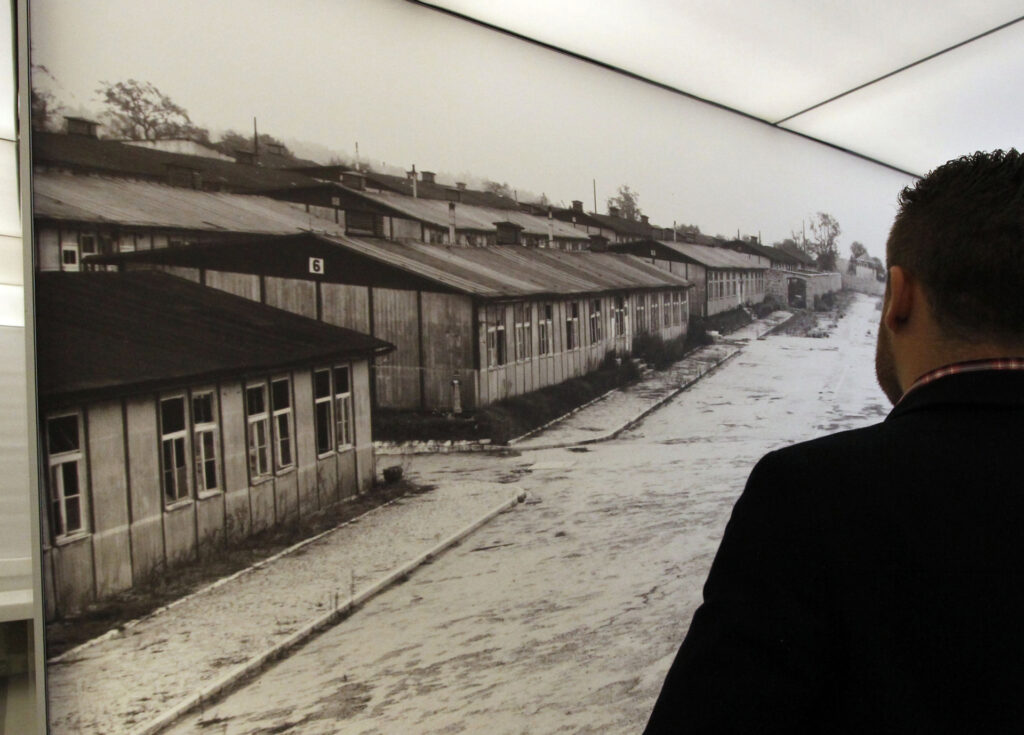
In this picture taken Thursday, May 2, 2013 a visitor looks at a poster of the former Nazi concentration camp of Mauthausen during a press preview in a new memorial room in the former camp in Mauthausen, Austria. The concentration camp was liberated by U.S. troops on May 5, 1945. (AP Photo/Ronald Zak)
Despite being feeble and malnourished, Taylor refused evacuation to the comforts of OSS headquarters and continued to fulfill his promise to his former inmates to bring camp officials to justice. A year later, Jack Taylor testified in a subset of the Nuremberg Trials.
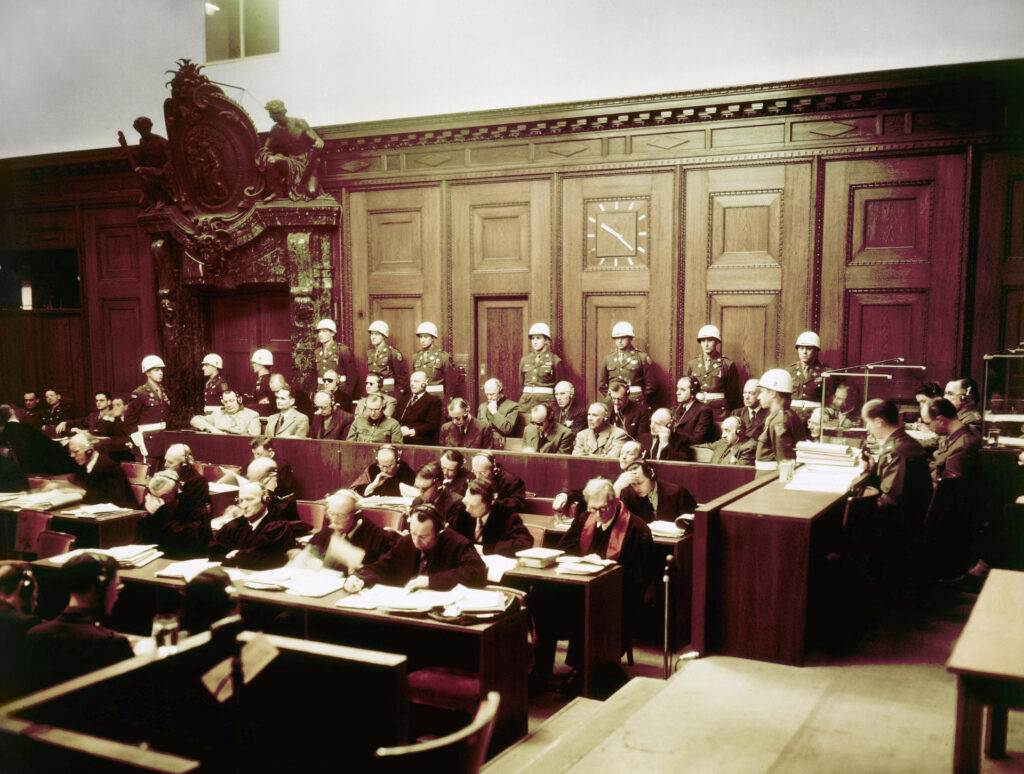
War crimes trial in progress in Nuremberg, Germany sometime in 1946. German prisoners are seated in front of long line of helmeted U.S. Military Police. (AP Photo)
For his actions during the war, Taylor received the Navy Cross. But Jack Taylor did not live long enough to witness the formation of modern SEAL teams and the pioneering efforts of the legacy he helped forge. In May 1959, Taylor died in a plane crash.
Patrick K. O’Donnell is a bestselling, critically acclaimed military historian and an expert on elite units. He is the author of twelve books, including The Indispensables, Beyond Valor, First SEALs, and The Unknowns. O’Donnell served as a combat historian in a Marine rifle platoon during the Battle of Fallujah and often speaks on espionage, special operations, and counterinsurgency. He has provided historical consulting for DreamWorks’ award-winning miniseries Band of Brothers and documentaries produced by the BBC, the History Channel, and Discovery. PatrickKODonnell.com @combathistorian
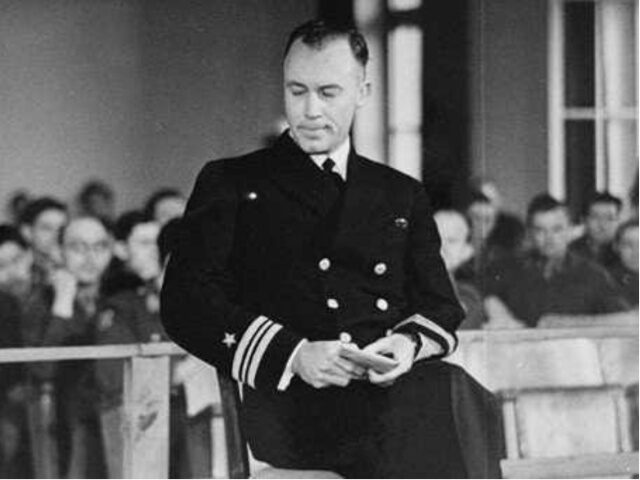
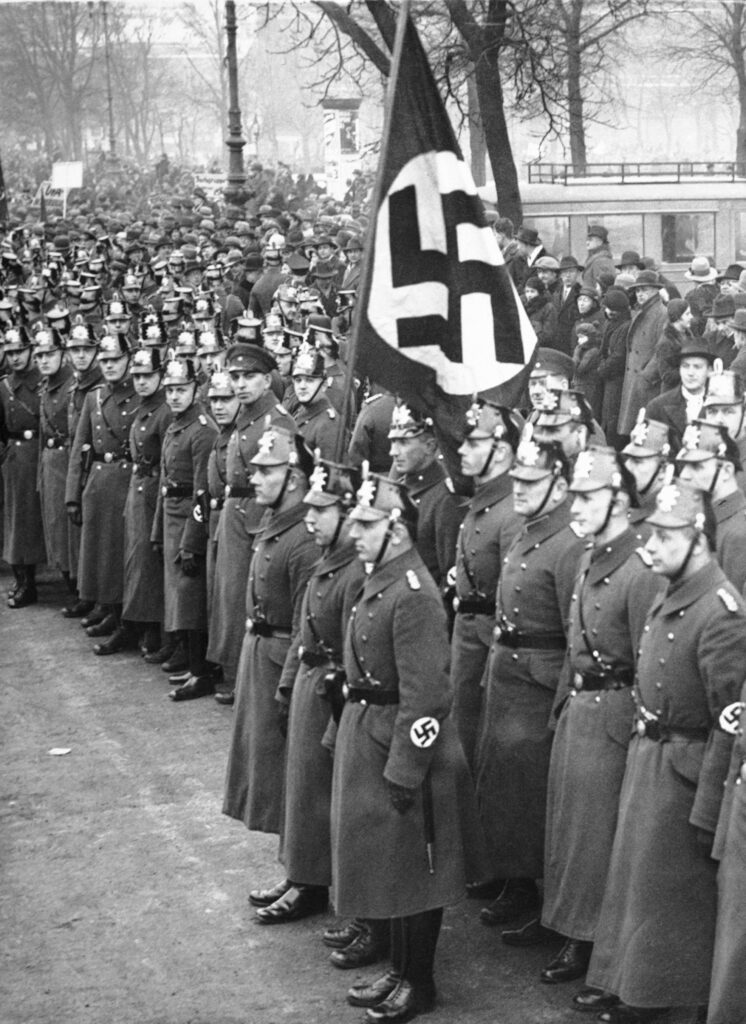
COMMENTS
Please let us know if you're having issues with commenting.